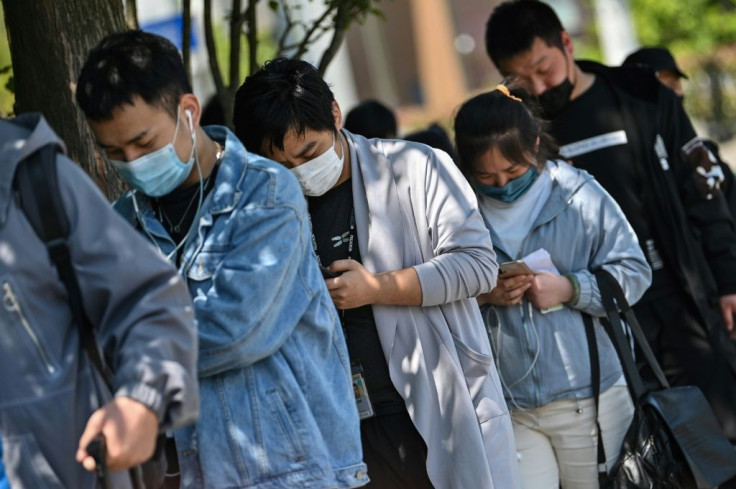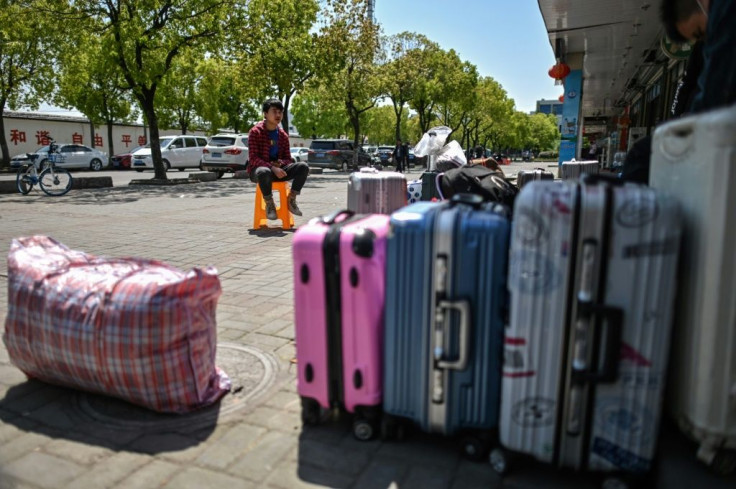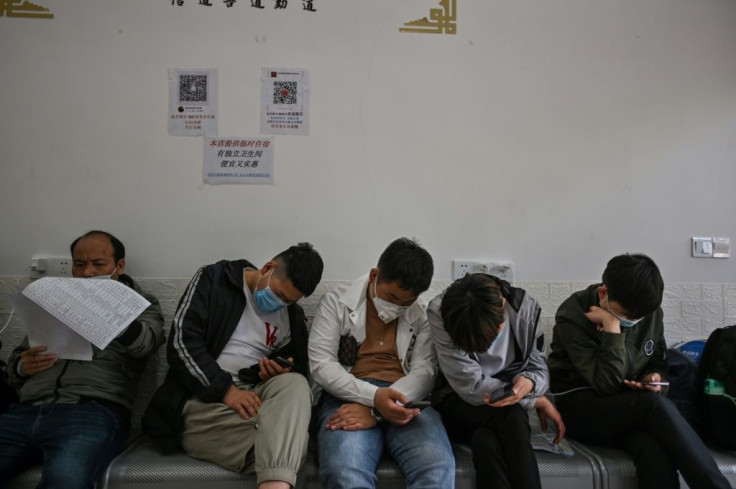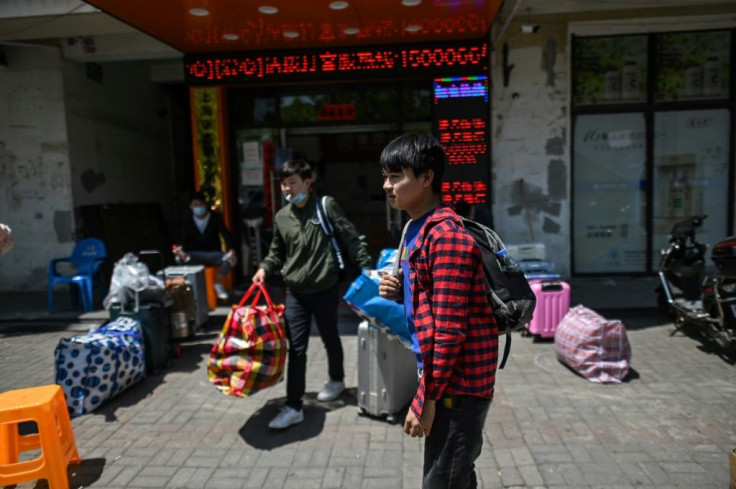Help Wanted: Jobless China Workers Await Relief
Life is never easy for China's nearly 300 million migrant workers, but with the coronavirus zapping jobs at a historic clip, unemployed factory labourer Wei Guikun is at his wits' end.
Since March, Wei has wandered in search of work from his home in eastern Shandong province -- where virus lockdowns stranded him for weeks -- to factories in China's southern coastal regions, and now back north to Shanghai.
But the pandemic has paralysed overseas export demand and the 29-year-old has faced only rejection or low-ball pay on his roughly 3,500-kilometre (2,200-mile) odyssey.

The global pandemic will force millions worldwide to spend Friday's International Workers Day in unemployment and uncertainty.
But perhaps nowhere is the pressure felt as keenly as in the world's second-largest economy, where the Communist Party has long staked its legitimacy on delivering jobs and prosperity in return for public acquiescence to its political monopoly.
"My fellow workers will definitely be angry (if their livelihoods suffer)," Wei said, pulling a wheeled suitcase down a seemingly endless avenue in a sprawling Shanghai factory district after another rejection.

"I've met fellow workers from Shandong, Henan, and Heilongjiang. They're all like that."
The situation raises the spectre of millions of angry citizens potentially protesting over their misfortune.
At this point, no one expects mass worker unrest in tightly controlled China, but joblessness is soaring after the economy shrank for the first time in decades in the first three months of the year.

UBS Securities said this week that perhaps 80 million jobs have been lost in services, industry and construction and more than 10 million other jobs could evaporate in export sectors as orders cease and businesses avoid large worker gatherings because of lingering virus fears.
"China's labour market pressure may be the most challenging since the late 1990s and early 2000s," UBS said.

Chinese brokerage Zhongtai Securities last week estimated joblessness at 20.5 percent, or around 70 million workers -- far exceeding that of the 2008-09 global financial crisis and three times official estimates.
But in an indication of the sensitivity of jobs data in China, Zhongtai later retracted the report, apparently under official pressure.
Even if still employed, an estimated 250 million workers will lose 10-50 percent of earnings this year, the Economist Intelligence Unit said.

But despite an array of stimulus measures such as business-tax breaks and liquidity injections for markets, UBS said help for idled workers has been "very limited even though the labour market hit has been substantial".
Geoffrey Crothall of China Labor Bulletin (CLB), which tracks Chinese labour strikes and workplace abuses, said "clearly there is grave concern in the central government".
"However, so far the relief measures have done very little to actually benefit workers," he added.
CLB already has tracked scores of small-scale work-related protests in the country since the virus erupted.
"There are going to be more and more (Chinese) workers not getting paid, and I think you will see a commensurate rise in protests," Crothall said.
"Much depends on whether people are willing to gather in large groups again."
Various reasons for the inaction have been suggested, including fear of over-stimulating the economy and creating a debt hangover like that built up in 2008-09, which China is still struggling to reduce.
The virus also postponed the annual national parliament session, where major policies are enacted.
Originally scheduled for early March, it will now begin on May 22, state media reported on Wednesday.
The central government last week indicated its concern about workers, urging greater help for rural poor and migrants, including extending unemployment benefits to them for the first time.
But Crothall said such benefits are so low and difficult to obtain that they are "really not going to help".
But other measures are on the table.
Apparently fearing a backlash, the central government has ordered cities to make it easier for migrants to obtain residency where they work, opening access to local social services like schooling and medical care.
Until then, life is on hold for Wei, who had hoped to earn enough to marry soon but returned this week to Shandong, still jobless.
"If I still can't find a job or salaries are low, it will definitely affect my ability to marry, and I'll be worried."
© Copyright AFP 2024. All rights reserved.





















